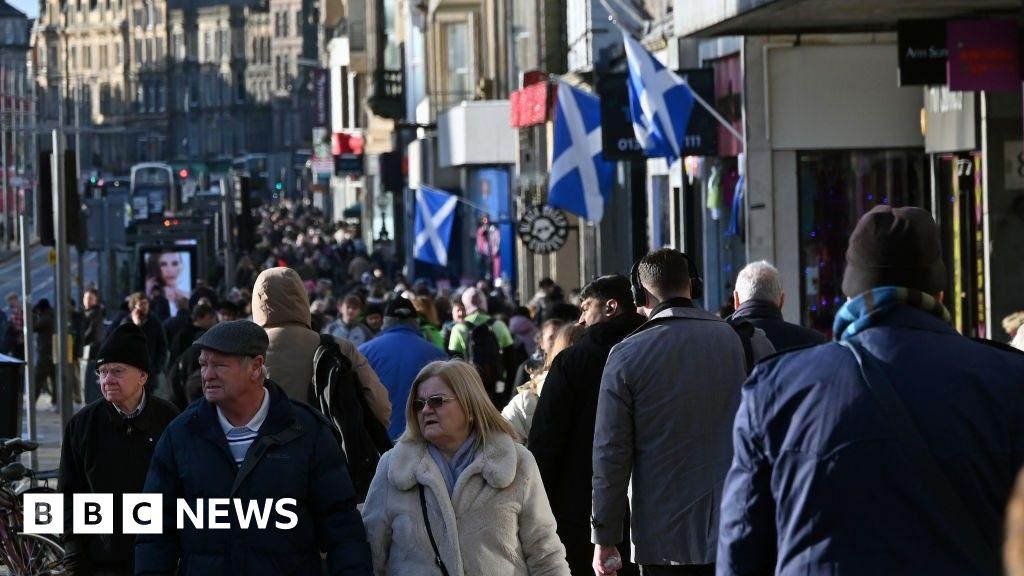Football
Kieran Tierney injury gives Scotland a headache and puts his future on hold

Kieran Tierney had plenty to ponder as he boarded a Friday flight to London. A penny for the thoughts of Steve Clarke as one of his star men succumbed to what appeared to be a serious hamstring injury as he crumpled to the turf during Scotland’s draw with Switzerland.
Tierney, by his own admission, is “heartbroken”. And no wonder, including in terms of the big picture: time and again, fitness woes hamper Tierney just when he seems to be making progress. A summer move from Arsenal not onlyappeared to be on the cards but felt essential. Now, clubs will pause while awaiting news of how long Tierney faces on the sidelines.
It seems strange to shed tears for Tierney, a young man earning six figures a week, but it feels so unsatisfactory that his career so continually stalls because of injury. His body will not allow him to be the player everyone knows he can be. Ominously, he sustained two hamstring tears during last season’s otherwise successful loan at Real Sociedad.
There is a reason why Tierney is adored by teammates and supporters. He was a wonderfully exciting, rampaging left-back at Celtic to the point where Arsenal paid £25m for his services. This was an all-too-rare case of an English blue-chip club paying top dollar for a Scottish talent. It was also five years ago.
Tierney should be one of the great Scotland players, of this and many other eras. His 47 caps feel like scant reward. Now, at 27 and when he should be approaching his peak, there is uncertainty. Tierney, whose confidence can only have taken several dents because of time spent on treatment tables, will know this only too well. Without his pace, power and explosiveness his game is vastly diminished. With these attributes, his body is under strain.
Tierney has been Scotland’s ace card since the means of fitting him and Andy Robertson into the team meant playing the former on the left of a three-man central defence. Tierney had briefly played at right-back but the experiment failed. In his adopted role, Tierney does far more than head balls clear and pass to midfielders. Tierney breaks from the back, often popping up in the opposition’s final third and routinely in combination with Robertson. Opponents look on with bemusement as Tierney collects the ball 25 yards from goal. He has been a difference maker, positionally and in terms of regularly strong international form.
So many of Scotland’s fine moments have had Tierney at their core. He was outstanding in the 2-0 win over Spain at Hampden Park which meant so much in respect of Euros qualification. Tierney did not play in the World Cup playoff defeat by Ukraine in the summer of 2022. He missed the costly loss to the Czech Republic which opened Scotland’s last Euros group section. Tierney was also absent from two of the five defeats, starting last September, which raised concerns about Scotland’s form coming into this tournament.
Without Tierney, Clarke will come under pressure to revert to a back four for Sunday’s crucial Group A clash with Hungary. Well, if one part of the Tierney-Robertson combo is missing, what is the point of retaining the back three? Scott McKenna is the favourite to replace Tierney should Scotland persist with their system but the former Aberdeen defender – while effective in his own way – is incomparable in style to Tierney. In fact, everyone else in this squad is.
Clarke may well feel he has insufficient time to implement a new defensive plan. Scotland played with a back four in the friendly against Gibraltar this month; hardly a scenario bearing any resemblance to what will transpire in Stuttgart. There is also no particularly obvious centre-back pairing should Clarke make a switch. An old adage suggests that if you cannot identify two clearly compatible centre-halves, the best plan is to add a third. Clarke rightly objects to any suggestion he is stubborn or reticent to change, but the reality is a back three is the formation Scotland have played with and learned more than any other during his tenure. Should Clarke swap and Scotland bow out of the Euros, his critics would hardly be short of ammunition.
More intriguing than the setup of the Scotland team is the identity of the players within it. Clarke regarded the Euros of three years ago as a steep learning curve, where Scotland emptied the tanks against England in their second group match and fell horribly flat in their subsequent meeting with Croatia. Scotland are not blessed with a multitude of backup options who would not diminish the level of their starting XI but a player such as James Forrest could make an impact. It may be regarded as sacrilege to point this out but John McGinn’s Scotland recent form has not been particularly strong. McGinn, whose goals from midfield had become vital, has scored once in his past 11 Scotland appearances. There would be a case for starting Ryan Christie in an advanced midfield role ahead of McGinn, unless Clarke does not fancy incurring the wrath of the Tartan Army. To them, McGinn is a poster boy.
So, too, is Tierney. He will look on from afar as Scotland look to create history by qualifying for the knockout stage of a tournament. Tierney has promised the squad he will be back in Germany to cheer them on if they do. That visit could even intensify Tierney’s sadness, should that be possible. There is no question Scotland will miss Tierney’s on-field presence. Tierney, though, will miss Scotland in equal measure. He is long overdue some good fortune.










